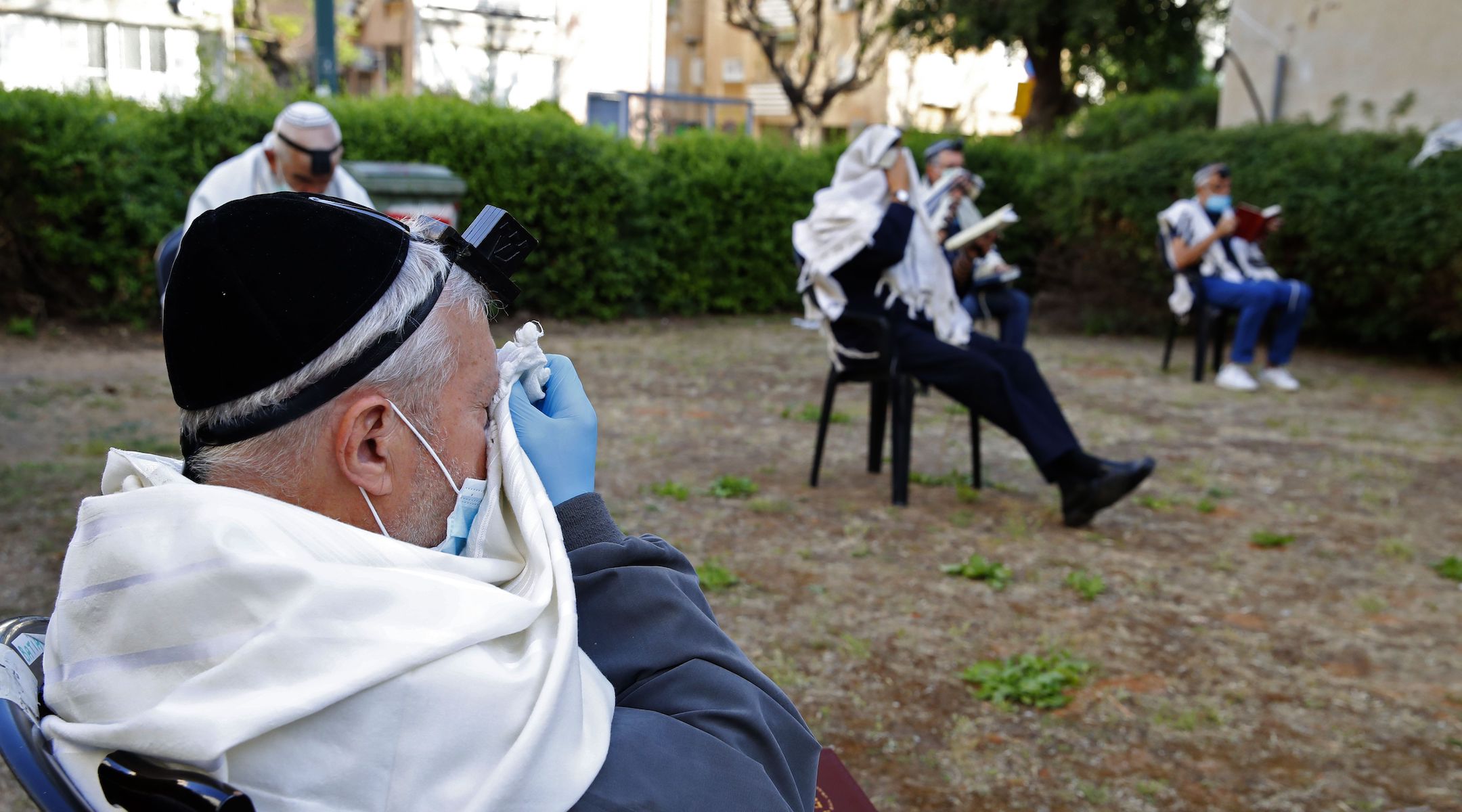(JTA) — Israel’s new plan to control the coronavirus pandemic places restrictions on cities based on their infection rates and includes special rules for synagogues during the High Holiday.
Under the plan approved Sunday night by government ministers, schools will open even in “red” communities — those with the highest rate of infections.
The ministers rejected a push by the country’s so-called coronavirus czar, Dr. Ronni Gamzu, to include schools in the “traffic light” plan.
“Opening the schools in ‘red’ cities will bring about a spike in infections in those cities and others,” Gamzu told the ministers, The Times of Israel reported. “I will continue to fight this.”
The name of the plan, which goes into effect on Sept. 6, refers to the designation of cities and towns with red, orange, yellow and green rates of infections and restrictions.
Israel has one of the highest rates of new coronavirus infections in the world.
Some 24 communities currently are designated as red, many of them Arab-Israeli cities and towns. The mostly haredi Orthodox settlement of Emmanuel is also red, as is the northern Israeli city of Tiberias.
The restrictions are based on the number of new weekly cases of the coronavirus per 10,000 residents, the increase of infected people and the number of positive test results.
For synagogues, the High Holiday rules allow for up to 1,000 worshippers in large venues, or one person for every nearly 5 square yards. The exact numbers are determined by the city’s color designation, size of the building and number of entrances. Worshippers will be divided into pods and use separate entrances.
Outdoor prayer services will see areas separated into permanent groups of 20 people each with 6 feet of distance between each person.
There is still the possibility of a nationwide lockdown over the holiday, Ynet reported.
JTA has documented Jewish history in real-time for over a century. Keep our journalism strong by joining us in supporting independent, award-winning reporting.






